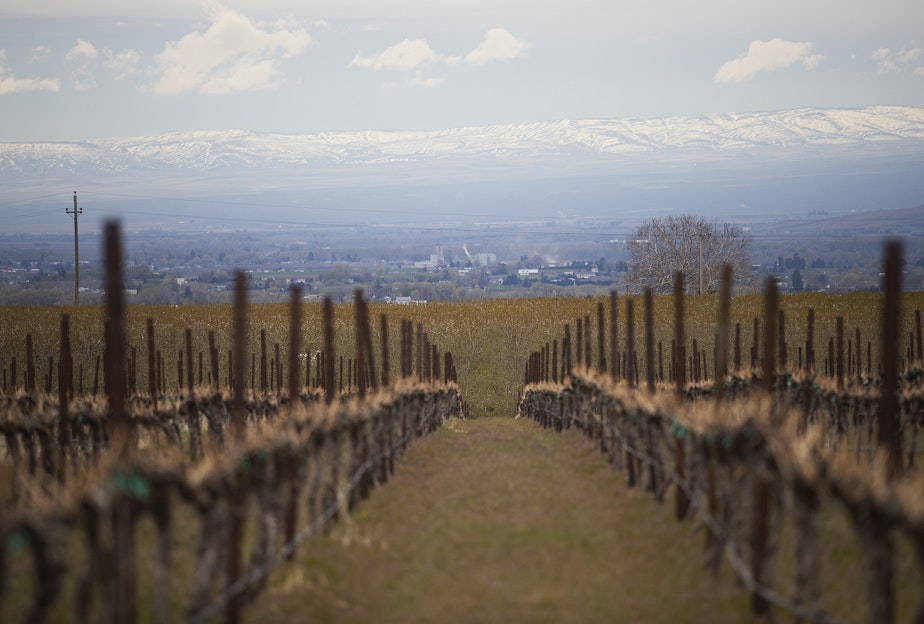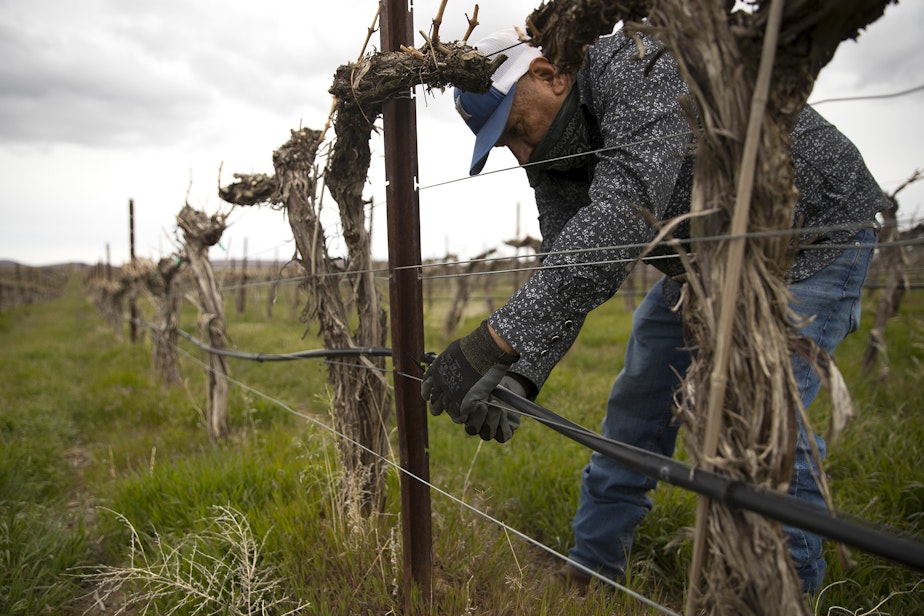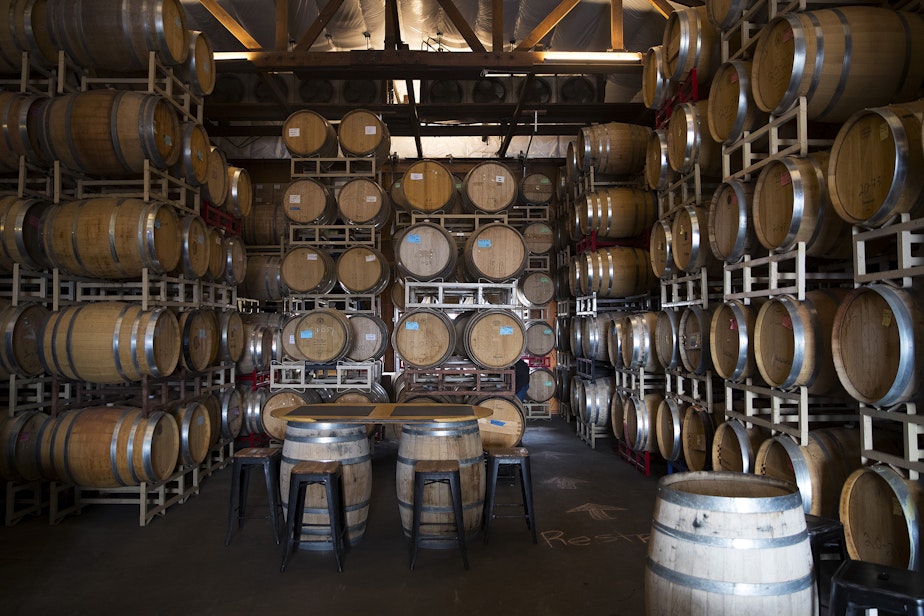How Washington’s vineyards are adapting to a changing climate: Travel For Good

Washington state is the second largest wine producer in the U.S., behind California. The changing climate and its unpredictability has created new challenges for growers. It’s one of the many reasons why vineyards around the state are adopting practices that make their grape crops more resilient.
At Two Mountain Winery in the town of Zillah, yellow-flowered mustard grass grows next to and under the vines. Patrick Rawn, vineyard manager and co-owner, said that in the past, his crews would mow down mustard grass. The grass competes with the grape vines for water and nutrients, or so conventional farming wisdom goes.
But it turns out, flowers from mustard grass are irresistible to thrips, a type of flying insect that likes to eat grape buds.

“So if we can let this mustard grow, the thrip will spend their time here, and not eat the grape buds,” Rawn said.
In addition to pest management, the mustard grass also offers protection from scorching heat.
Sponsored
“Part of this is keeping the soil temperature down in the heat of the summer, so that grass acts as a layer of almost insulation,” said Rawn.
Last year’s heat wave set a new record high of 120 degrees in this part of the state. It was tough for farmers, including wine grape growers. Rawn said his grapes didn’t grow as big that year. And his harvest was 20 percent smaller than expected.
This year, Rawn is going to let the mustard grass grow on about a third of the vineyard’s 300 acres.

The young consumers, Millennials and Gen. Z in particular, are driving a trend in sustainable practices, according to the Washington Wine Growers Association, the state agency that oversees this industry.
Sponsored
A 2019 survey from the agency notes that “consumers want to know how the products they consume are made. They want clean products from socially responsible companies.”
The agency told KUOW that most growers are working to adopt practices which take less of a toll on the environment — such as ditching pesticides or using controlled irrigation.
Rawn runs Two Mountain Winery with his brother Matt. They’re fourth-generation farmers.
The Wine Growers’ Association recently granted Two Mountain Winery a new sustainability certification. The vineyard is one of only six in Washington with this certification, which the state rolled out last year. The certified vineyards include:
Sponsored
- White Heron Cellars (Mariposa Vineyard)
- North Slope Management (Taggart Vineyard)
- Rawn Farm Management (Two Mountain Winery)
- Rocky Pond Winery
- Shaw Vineyards
- Zirkle Fruit
This piece is from our eight-part Travel For Good series, spotlighting tourism ideas across the state that teach about our fragile wonders and how we can help protect them. Check out more stories from the series here.
Want to share your social good travel ideas with us? Send an email to zhamid@kuow.org. We might feature your submission in future stories!




